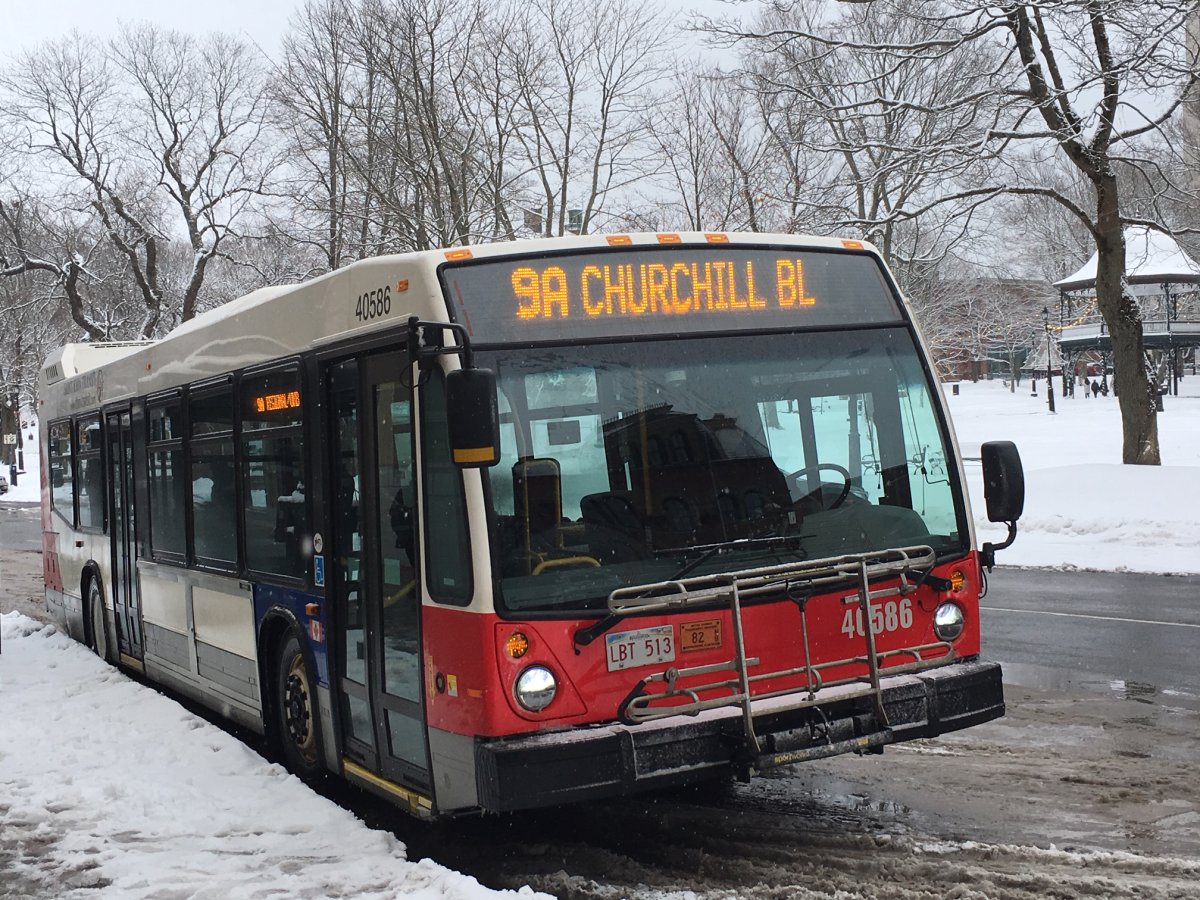Saint John Transit will resume collecting fares next week, the City of Saint John announced on Wednesday.

The collection of fares was suspended on March 18, as the city attempted to find an alternate method of fare collection during the COVID-19 pandemic.
READ MORE: Saint John transit waives fares, asks riders to use rear doors amid coronavirus
In the meantime, all 46 buses in the transit service’s fleet are being retrofitted with plexiglass barriers to enhance safety for the driver.
Saint John Transit said in a statement on Wednesday that fare collection will resume at 6 a.m., AT on April 14.
All bus passes for the month of March will remain valid through April.
Not all buses will have barriers installed by the time Saint John Transit resumes collecting fares and it says on buses where there are barriers, passengers must enter and pay their fare via the front door.

On buses where there are no barriers, fares will not be collected and passengers must enter and exit via the rear door.

Get daily National news
Saint John Transit expects that all buses will be outfitted with plexiglass barriers by early May.
Questions about COVID-19? Here are some things you need to know:
Health officials caution against all international travel. Returning travellers are legally obligated to self-isolate for 14 days, beginning March 26, in case they develop symptoms and to prevent spreading the virus to others. Some provinces and territories have also implemented additional recommendations or enforcement measures to ensure those returning to the area self-isolate.
Symptoms can include fever, cough and difficulty breathing — very similar to a cold or flu. Some people can develop a more severe illness. People most at risk of this include older adults and people with severe chronic medical conditions like heart, lung or kidney disease. If you develop symptoms, contact public health authorities.
To prevent the virus from spreading, experts recommend frequent handwashing and coughing into your sleeve. They also recommend minimizing contact with others, staying home as much as possible and maintaining a distance of two metres from other people if you go out.
For full COVID-19 coverage from Global News, click here.
- Jasper mayor says CN Rail relocation will be devastating: ‘Deeply disappointed’
- Retired Quebec teacher buys winning lottery ticket at last minute, wins $40M
- N.B. election: Higgs went to ‘very dark place’ with Liberal joke, opponent says
- GM, Volvo, Land Rover vehicles among those in big recall. What to know









Comments